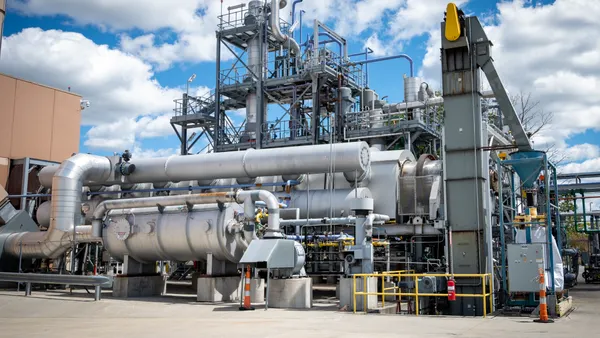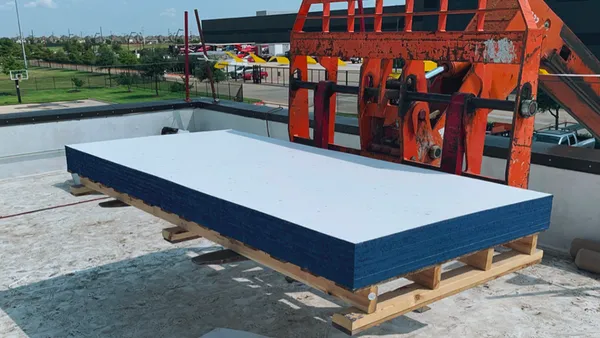UPDATE: September 6, 2019: Lexington, Kentucky issued a request for proposals Thursday to potentially resume mixed paper recycling. The RFP was written by Resource Recycling Systems, which has been brought in to consult on multiple aspects of the city's recycling program. After suspending paper recycling in May, Lexington now aims to resume service by "late fall."
"People ask me about it all the time," Mayor Linda Gorton said in a statement. "They say they're not comfortable putting paper in the trash, and neither am I. We're all anxious to get back to recycling."
Dive Brief:
- Lexington, Kentucky Mayor Linda Gorton is calling for a revamp of the city's "sputtering" recycling program, noting in a statement that a program overhaul has been necessary for several years.
- The city has hired Resource Recycling Systems (RRS) to help evaluate Lexington's recycling program and make recommendations for improvements. Specific priorities include securing contracts for crushed glass, investigating private operation of the city's LEX-MRF recycling center and repairing or replacing its aluminum sorting machine.
- Lexington is also seeking new paper markets and hopes to start utilizing two unspecified mills expected to open this fall. Negotiations are ongoing with those mills while the city continues "aggressively pursuing all possibilities."
Dive Insight:
Last month, Lexington temporarily suspended paper recycling in its curbside program, citing cost increases from commodity market changes. The city asked residents to put paper in the trash until it can identify a more economical recycling solution.
Based on the mayor's release, that concept isn't sitting well with everyone.
"I'm like a lot of citizens … every time I put a piece of paper into the garbage can I feel like I’m doing something wrong. Lexington citizens believe in recycling, and we are going to give them an effective and efficient program our city deserves," Gorton said in a statement.
She added that while city staff work hard to keep the recycling program alive and operate LEX-MRF, they can't overcome the facility's outdated equipment. She also highlighted difficulties related to market changes, calling for a plan to move forward with recycling facility and program improvements.
"We've tried to tighten up our belts. We’re running as lean of a crew that we possibly can and we're hoping we can develop additional markets for these loads," Barry Prater, LEX-MRF plant operations manager, told Waste Dive last month.
Prater also explained how glass — about 11% of the MRF's outbound shipments — has created a burden on the program's economic feasibility. The city has been contemplating whether to suspend glass collection.
"That is a non-valued item that actually ... we have to pay to get rid of," he said. "You cannot control the markets. They're going to go up, go down and sideways on a regular basis. The only thing you can only control in this business is your costs."
Through the partnership with RRS, the city plans to assess and secure markets for crushed glass and also look into purchasing its own advanced glass recycling machinery.
Addressing so many commodities in the revamp plan — paper, glass, aluminum — illustrates the wide scope of the issues LEX-MRF has to overcome. Challenges at the facility, which serves more than a dozen neighboring municipalities, may also have a ripple effect beyond Lexington's borders. Unlike many others in the U.S., the city still owns and operates its own MRF. That may change depending on RRS' recommendations.
Thus far, neither Lexington or RRS have indicated how long the recycling program evaluation period will be or when changes would be implemented. The consulting firm told Waste Dive it's still working with city officials to prioritize the various tasks outlined. Citizens have not been asked to make any additional changes to their curbside collection routines during the evaluation period.










